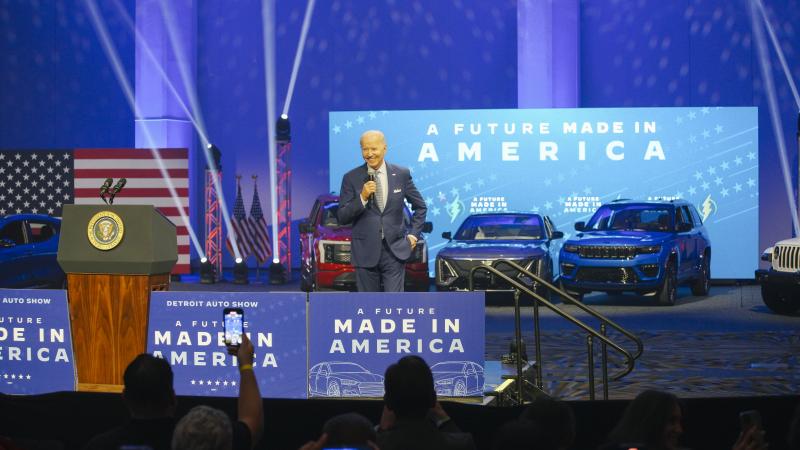Real courts clip wings of agency courts, reject power to police humor, deny right to jury trial
SEC's bad month continues as 5th Circuit rules Congress can't give agency "unfettered authority" to choose between federal court and in-house administrative law judges for any given defendant.
Federal appeals courts put administrative law courts in their place this week, blocking the National Labor Relations Board from regulating humor and threatening the viability of Securities and Exchange Commission tribunals overseen by in-house judges.
While the 3rd U.S. Circuit Court of Appeals told the NLRB not to waste its time looking for labor violations in joke tweets, it was the 5th Circuit's ruling against the SEC that sent shock waves through the regulatory world.
Hedge fund manager George Jarkesy has a 7th Amendment right to jury trial because "the SEC's enforcement action is akin to traditional actions at law to which the jury-trial right attaches," according to the majority opinion by Judge Jennifer Walker Elrod.
Congress also cannot delegate its legislative power to federal agencies without "an intelligible principle to guide its use of the delegated power," the ruling continued.
The majority nullified the SEC's "unfettered authority" to choose between federal courts and its own administrative law judges (ALJs) when bringing enforcement actions and struck down the "statutory removal protections" unconstitutionally placing its ALJs beyond the reach of executive branch control.
It's the third mortal threat to the SEC's methods in less than a month.
The Supreme Court agreed to consider whether enforcement targets can challenge the ALJ system in federal court, including the removal protections, before finishing an administrative proceeding that can drag out over years. Free-spoken billionaires Elon Musk and Mark Cuban asked the high court to strike down the SEC's gag orders in settlements.
The Institute for Justice is pursuing a similar challenge against the Labor Department's ALJ system on behalf of farmers.
Lawyer Robert Johnson told Just the News the libertarian legal defense nonprofit is submitting the SEC ruling as "supplemental authority" in its Labor challenge, because the 5th Circuit "vindicates everything we have been saying in our case." Both lawsuits argue that monetary liability implicates "private rights," so governments can't impose it through ALJs under the "public rights" doctrine.
Johnson was heartened that the 5th Circuit described the SEC's argument — "When the federal government sues, no jury is required" — as "perhaps a runner-up in the competition for the 'Nine Most Terrifying Words in the English Language,'" referring to President Reagan's famous aphorism about government help.
The SEC marginalized the crucial role juries have played in American history, according to Judge Elrod's ruling, which credits the the pledge to formalize the jury right in the 7th Amendment as an indispensable precondition to the ratification of the Constitution.
The Supreme Court has interpreted that amendment to apply to "suits brought under a statute seeking civil penalties," such as the SEC's $300,000 penalty on Jarkesy for securities fraud, and fraud claims throughout American history are "quintessentially about the redress of private harms," Elrod wrote.
That means Jarkesy must be offered a jury for the entire proceeding, even though the other punishments — a ban on participation in securities activities and disgorgement of ill-gotten gains by his investment adviser Patriot28 — are "equitable remedies" fit for ALJs to consider.
Quoting the Supreme Court's 1989 Granfinanciera ruling, the opinion says: "Congress cannot eliminate a party's Seventh Amendment right to a jury trial merely by relabeling the cause of action to which it attaches and placing exclusive jurisdiction in an administrative agency or a specialized court of equity."
The opinion notes the SEC took seven years to adjudicate Jarkesy's case and "makes no argument that proceedings with a jury trial would have been less efficient," while federal courts have heard securities-fraud cases for "many decades" and were originally the only venue for them.
The agency is wrong that it's exercising "a form of prosecutorial discretion — an executive, not legislative, power" — when it chooses whether to bring a case to an ALJ or a federal court, Elrod wrote. Congress unconstitutionally gave the SEC discretion over "which defendants should receive certain legal processes," which only Congress can do, and said "nothing at all" about how to "make that call in any given case."
Since they can only be removed for "good cause" by the Merit Systems Protection Board, whose members can only be removed "for cause" by the president, the SEC's ALJs are unconstitutionally outside of executive control, the opinion says.
SCOTUS has already deemed them "inferior officers" under the appointments clause, and the agency's ALJs exercise "considerable power over administrative case records." Elrod said the panel had not decided, however, whether vacating the SEC's punishment "would be appropriate" based only on the removal protections.
Judge Eugene Davis dissented from all three findings. Other appeals courts "routinely hold that an enforcement action by the Government for violations of a federal statute or regulation is a 'public right' that Congress may assign to an agency for adjudication without offending the Seventh Amendment," he wrote.
The dissenting judge also said the majority misread the Granfinanciera ruling, which "did not involve a suit by or against the Federal Government." A later precedent, Atlas Roofing, confirms that "public rights" are implicated when the government sues "in its sovereign capacity to enforce a statutory right," Davis wrote.
The National Law Review said the 7th Amendment finding "could affect the viability of various provisions of the Social Security Act that authorize the administrative imposition of civil money penalties or authorize the agency, directly or through certified surrogates, to adjudicate disputes between private parties."
Johnson of the Institute for Justice said much criticism of the ruling is "completely overblown." It does not implicate the awarding of benefits, which constitutes "the vast majority of what federal ALJs do," he told Just the News. "The sky is not falling."















